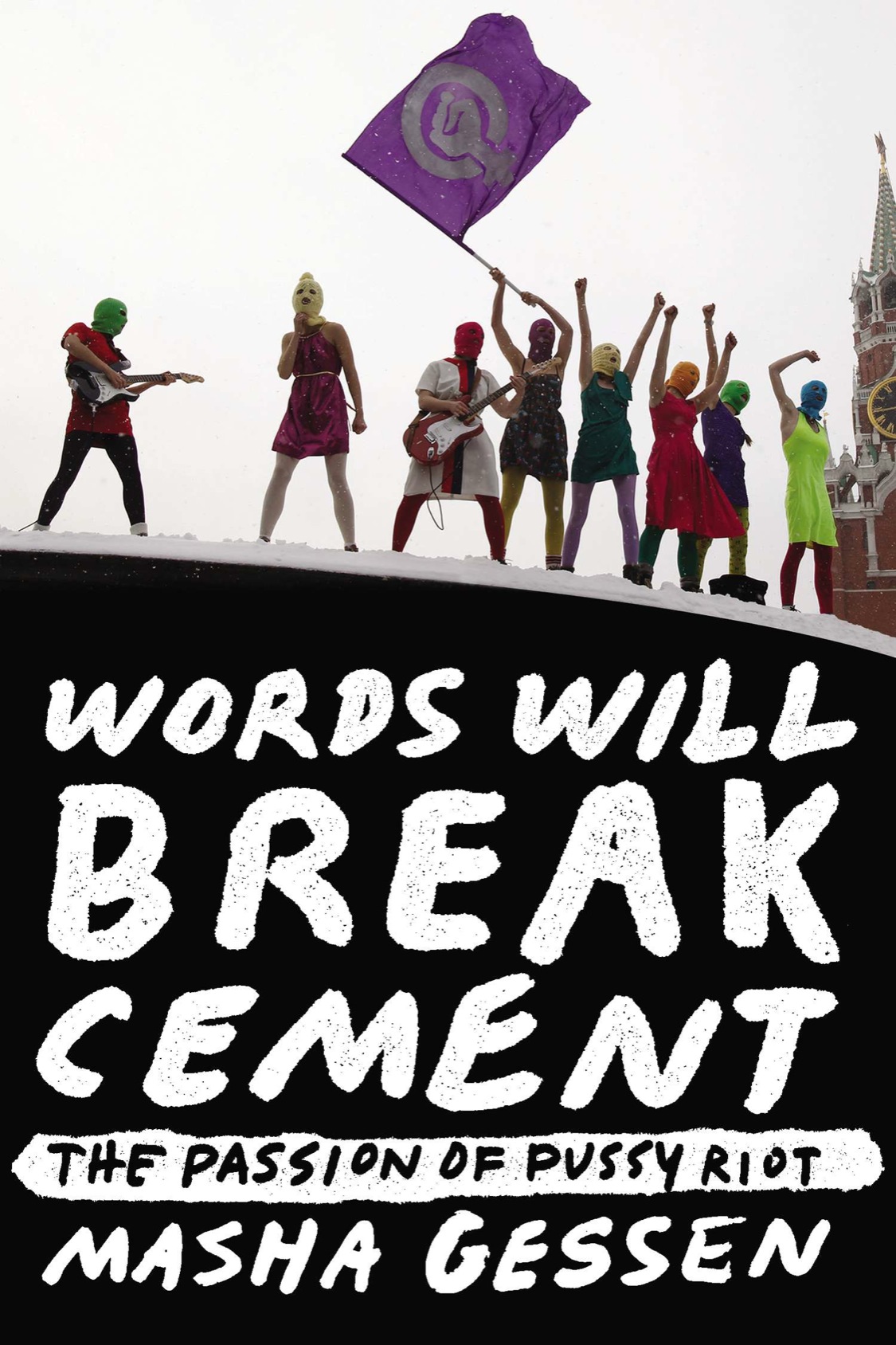
Words Will Break Cement
The Passion of Pussy Riot
کتاب های مرتبط
- اطلاعات
- نقد و بررسی
- دیدگاه کاربران
نقد و بررسی

Starred review from February 10, 2014
Bestselling author Gessen (The Man Without a Face) chronicles the progression of Nadya Tolokonnikova, Maria Alyokhina, and Kat Samutsevich from their idealistic beginnings as young intellectuals to their arrest and prosecution for hooliganism as the punk rock collective Pussy Riot. The events are set in the background of Putin's Russia with its rigged elections, "bourgeois morality," and the corrupt Russian Orthodox Church that ignited a firestorm of protest. The author sets the stage with early Pussy Riot actions in Moscow Metro stations and the Red Square, before culminating in the notorious event, in which they used the performance art piece "Mother of God, Get Rid of Putin" as a form of protest at the Cathedral of Christ the Savior. She details their frightening arrest and interrogation in which Samutsevich was threatened with rape and months of pretrial detention. What follows is a trial reminiscent of those from the Soviet era, with bumbling defense attorneys, pearl-clutching witnesses, a bomb threat, and a botched political action, while the defendants watched from within a clear Plexiglas aquarium. Readers visit the penal colony in Mordovia where Tolokonnikova's family travel 11 hours to sit with her for a mere two and a half. Interspersed throughout are Pussy Riot lyrics, correspondence with Gessen, friends and journalists, and the entirety of the closing statements at the trial. Gessen's manner of storytelling is exhilarating and cinematic and this important book will be the definitive text on Pussy Riot.

January 15, 2014
A Russian-American journalist faces considerable challenges in telling the story of a punk band that most know only by its notorious name. While considering flight rather than facing trial for a performance within Moscow's Cathedral of Christ the Savior, the members of Pussy Riot decided not to flee their homeland, since that option "was for serious people in real trouble, not for intellectual pranksters who presented themselves as silly young girls." Ultimately, they found themselves in serious trouble, bordering almost on torture: an extended pretrial imprisonment, a trial that left no doubt from the outset as to the verdict, and the two-year sentences that two of the defendants have been serving (a third challenged the verdict after switching lawyers and had her sentence suspended). Ultimately, in impact and consequences, Pussy Riot makes the Sex Pistols look as harmless as the Monkees by comparison. The problem with this illuminating book is that Gessen (The Man Without a Face: The Unlikely Rise of Vladimir Putin, 2012) is both too close and not close enough. While she lacked access to the incarcerated members once worldwide attention justified a book such as this (likely to capitalize on the profile it helps raise, just as it analyzes how some involved have hopes of capitalizing), she does not provide the detail required by those readers who may not understand the intricacies and absurdities of the Russian legal system. The reporting of the trial is the most vivid, as the three articulate, intelligent defendants face diversionary charges of blasphemy in the church instead of the anti-Putin protest they were plainly making. "How did our performance, a small and somewhat absurd act to begin with, balloon into a full-fledged catastrophe?" asked one in a closing statement. "Obviously, this could not have happened in a healthy society." Losing in court, they emerged victorious in the eyes of the world, which awaits the next chapter in what could become a significant career. An uneven but revelatory introduction to the story, though certainly not the last word.
COPYRIGHT(2014) Kirkus Reviews, ALL RIGHTS RESERVED.

February 1, 2014
Journalist Gessen (The Man Without a Face: The Unlikely Rise of Vladimir Putin) recounts the story of Pussy Riot, the Russian feminist protest art group, three of whose members were arrested in March 2012 for their performance in a Moscow church. Based on interviews with Pussy Riot members (including those arrested and others in the group), their families, friends, and attorneys, Gessen puts their protest and arrests in the context of post-Soviet, Putin-era Russia's culture and society. The book is told from the point of view of the arrested band members, based on the author's interviews (Gessen is fluent in Russian), including of Nadya Tolokonnikova in-person in prison and Maria Alyokhina by letter. (Gessen also interviewed members of Pussy Riot who were not affected.) She touches on their philosophical and social ideologies leading up to the church performance and their thoughts during incarceration. Gessen quotes the artists' lyrics often to highlight the group's political/social criticism. She sheds light more generally, in the process, on underground protests and youth culture in today's Russia. Gessen is careful to note her personal involvement in covering the story. An epilog and postscript deal with the recent release of Nadya and Maria. VERDICT Recommended to readers in feminist studies, those following Putin's Russia, and all who study protest art.--Elizabeth Zeitz, Otterbein Univ. Lib., Westerville, OH
Copyright 2014 Library Journal, LLC Used with permission.

























دیدگاه کاربران